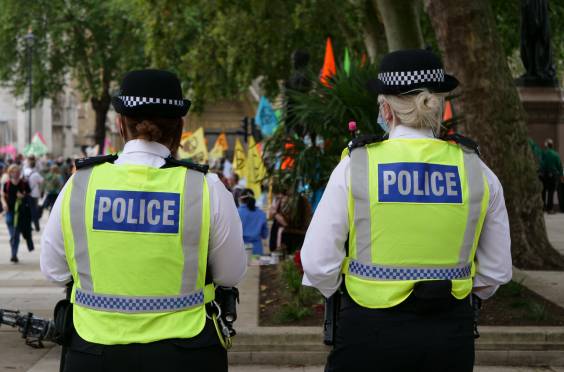Defending A Charge Of Coercive Or Controlling Behaviour
Defending A Charge Of Coercive Or Controlling Behaviour
Section 76 of the Serious Crime Act 2015 (SCA 2015) created the offence of controlling or coercive behaviour (CCB) in an intimate or family relationship. The scope of what amounts to CCB is extremely wide, in fact there is no exhaustive list and Prosecutors are told to be alive to Defendants tailoring CCB to the specific fears and character traits of the complainant. Defending a charge of controlling or coercive behaviour is challenging and extremely hard to achieve without the legal advice and support of a Criminal Defence Solicitor, especially given that so much of defending a CCB charge happens well before the matter reaches a Criminal Court.
What is coercive or controlling behaviour?
The Statutory Guidance Framework provides examples of CCB. The behaviour can include:
• isolating a person from their friends and family
• monitoring their time
• monitoring a person via online communication tools or using spyware
• using digital systems such as smart devices or social media to coerce, control, or upset the victim including posting triggering material
• taking control over aspects of their everyday life, such as where they can go, who they can see, what to wear and when they can sleep – this can be intertwined with the suspect saying it is in their best interests, and ‘rewarding’ ‘good behaviour’ e.g. with gifts
• depriving them of access to support services, such as specialist support or medical services
• repeatedly putting them down such as telling them they are worthless
• enforcing rules and activity which humiliate, degrade, or dehumanise the victim
• forcing the victim to take part in criminal activity such as shoplifting, neglect or abuse of children to encourage self-blame and prevent disclosure to authorities
• economic abuse including coerced debt, controlling spending/bank accounts/investments/mortgages/benefit payments
• controlling the ability to go to school or place of study
• taking wages, benefits, or allowances
• disclosure of HIV status or other medical condition without consent
• limiting access to family, friends, and finances
• withholding and/or destruction of the victim’s immigration documents, e.g. passports and visas
• threatening to place the victim in an institution against the victim’s will, e.g. care home, supported living facility, mental health facility, etc (particularly for disabled or elderly victims
The above list is by no means exhaustive. Prosecutors will consider every case on its own facts. The College of Policing Authorised Professional Practice on Domestic Abuse provides the following guidance as to when behaviour crosses the line into abuse:
“In many relationships, there are occasions when one person makes a decision on behalf of another, or when one partner takes control of a situation and the other has to compromise. The difference in an abusive relationship is that decisions by a dominant partner can become rules that, when broken, lead to consequences for the victim.”
A suspect and victim are personally connected if:
• they are, or have been, married to each other
• they are, or have been, civil partners of each other
• they have agreed to marry one another (whether or not the agreement has been terminated)
• they have entered into a civil partnership agreement (whether or not the agreement has been terminated)
• they are, or have been, in an intimate personal relationship with each other
• they each have, or there has been a time when they each have had, a parental relationship in relation to the same child, or
• they are relatives
The term ‘intimate personal relationship’ is not defined in legislation, but it can cover situations such as dating.
What should I do if I am arrested for coercive or controlling behaviour?
The first thing you must do is contact a Solicitor who is experienced in defending domestic abuse cases. Although you are entitled to speak to the Duty Solicitor, they may not be experienced in domestic abuse matters.
The first thing a Criminal Defence Solicitor will do is talk with the Custody Officer and find out why you were arrested and what evidence they have against you. They will also advise you before, during, and after a police interview. Their focus will be on getting you released without charge. If this is not possible, your Solicitor will work to prevent prosecution.
Will I be prosecuted for coercive or controlling behaviour?
To bring a prosecution, the Crown Prosecution Service must:
a) Be satisfied there is enough evidence to provide a ‘realistic prospect of conviction’ against the Defendant, and
b) Having regard to the nature and seriousness of the offence, conclude that bringing a criminal prosecution is in the public interest.
This test is known as the Charging Standard. It can be difficult for the Prosecution to obtain evidence that provides a ‘realistic prospect of conviction’ because unlike physical abuse, coercive or controlling behaviour is not likely to result in police reports or the complainant visiting hospital.
Your Solicitor will carefully watch the police and their observance of the Charging Standard and challenge both the evidence being presented to the CPS and whether prosecuting you is in the public interest.
If the CPS does bring a prosecution, they must prove CCB ‘beyond reasonable doubt.’ If you believe you were acting in the complainant’s best interest; and that your behaviour was reasonable under the circumstances, you may have a defence. However, this defence is not available if the complainant alleges your actions caused them to fear, on at least two occasions, that violence would be used against them.
Next steps
Having an experienced Criminal Law Solicitor by your side following an arrest for domestic abuse, including coercive or controlling behaviour, is a crucial factor in getting a positive outcome to your case. With the benefit of their experience and knowledge of the legal system and police procedures, you can trust that your best interests will be protected, and you will receive the legal advice and representation you need.

